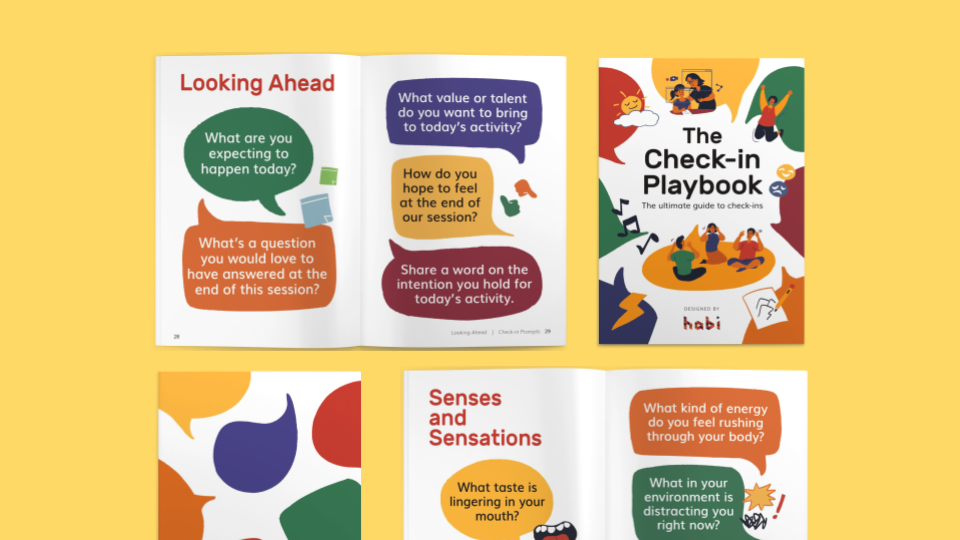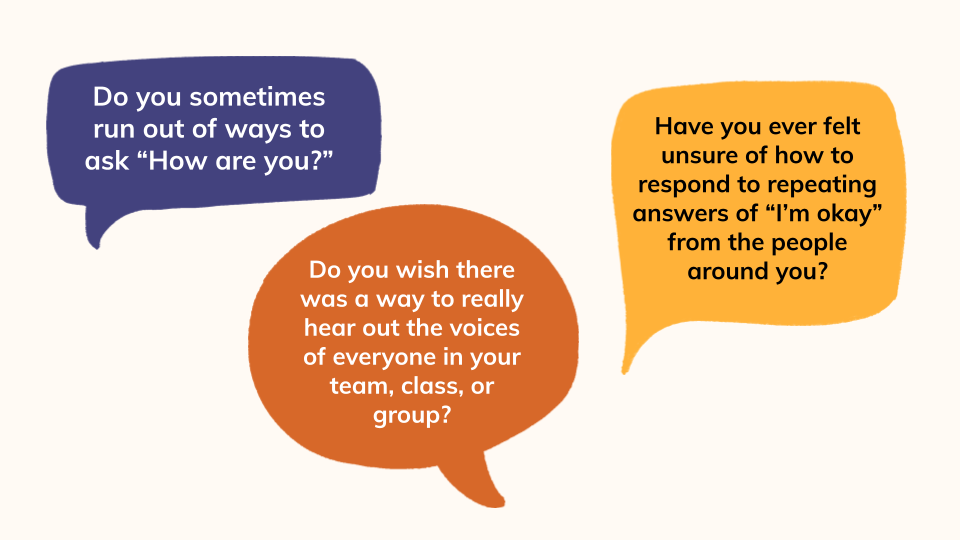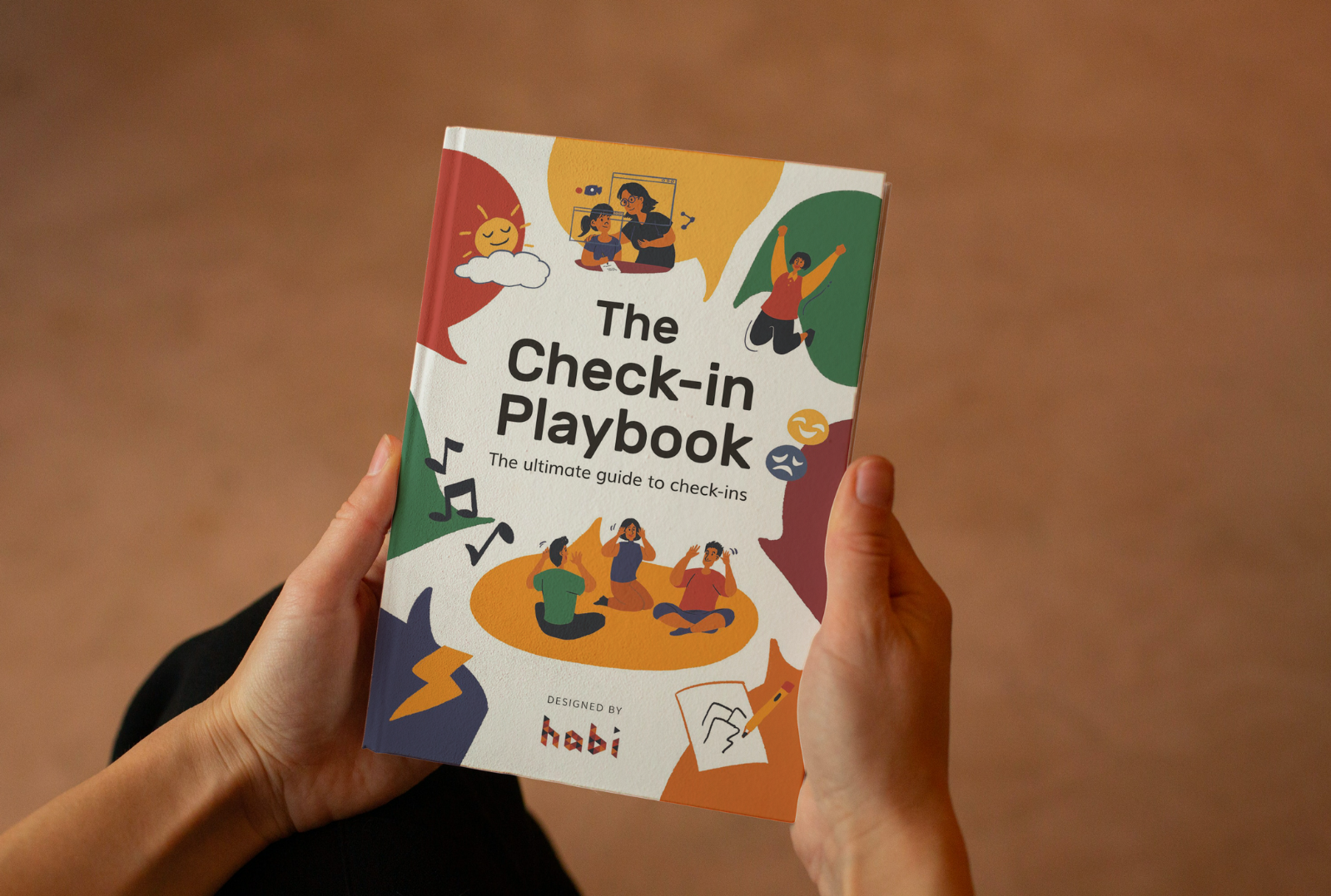Driven by empathy and curiosity for human experiences, the Check-in is one of our most popular and replicated practices, with members of the Habi community integrating it into their different contexts and sharing positive feedback whenever they use it. Understanding that empathy is one of the key features of any enabling environment, we published The Check-in Playbook as a guide for anyone who wants to facilitate more purposeful and intentional gatherings by understanding the people around them. Since its first release in September 2021, we have sold 200 copies and opened a third batch of pre-orders.
Task
How might we facilitate purposeful and empathetic gatherings?
Check-ins for empathy
At the beginning of every gathering (whether it’s a team huddle, a workshop, focus group discussion, or even a partner meeting), the Habi team facilitates a Check-in: an activity that uses creative prompts to understand people’s needs, motivations, and feelings at the moment. The Check-in is an invitation to pause for self-reflection, listen and empathize with the people around us. Used purposefully, Check-ins help us facilitate more intentional gatherings and learning experiences.
The Check-in is one of our most popular and most replicated activities, with members of the Habi community adapting it into their own contexts, particularly during the shift from face-to-face to online interactions. They’ve expressed that Check-ins help to make online interactions less transactional and more relational. In particular, teachers and educators mention that their students appreciate the pause as they’re not accustomed to being asked how they are in academic settings.
Lab-grown at the Habi Shop
We developed The Check-in Playbook through the Habi Shop, our channel for creating delightful and accessible tools for designing learning experiences. It was inspired by the internal playbooks that we had been creating to develop the team’s skills in facilitating online workshops.
We looked to our community members to inform the content and design of the playbook. One of the frequently mentioned challenges was coming up with creative prompts that would elicit authentic responses. While the collection of prompts was chosen as the playbook’s key feature, we started with reiterating the purpose of the Check-in. We also shared tips on setting up safe spaces and processing the responses for more intentional gatherings. Blank pages were added to the back to encourage users to come up with their own prompts.
Since its first release in September 2021, we have sold 200 copies and opened a third batch of pre-orders.



